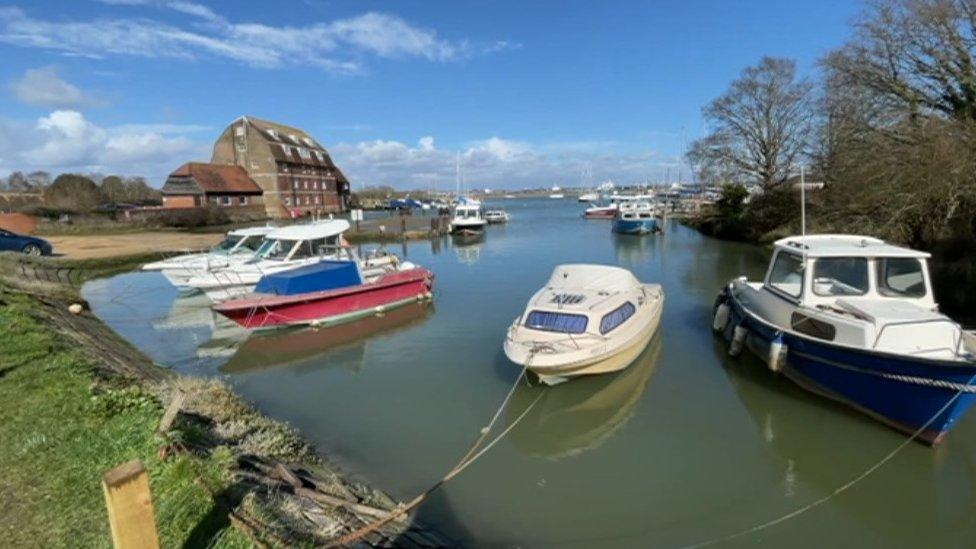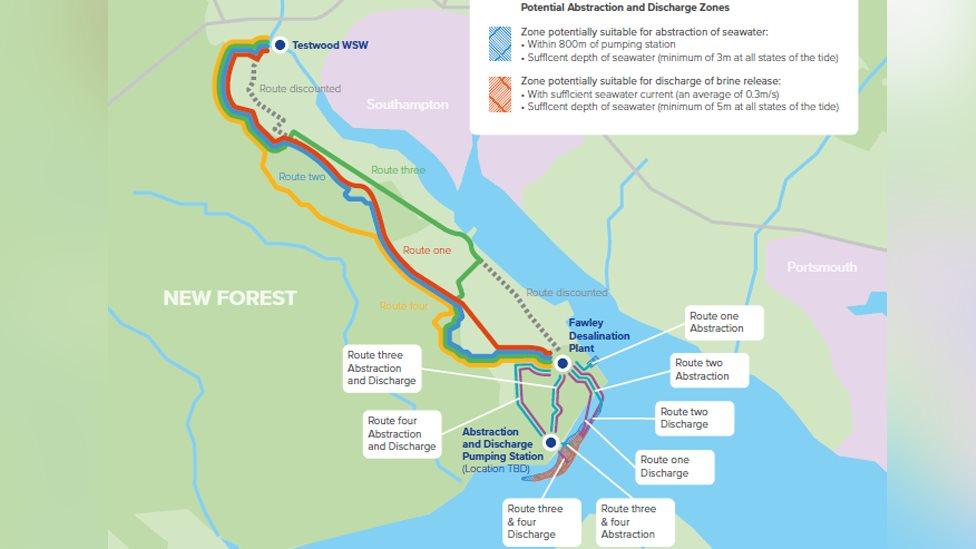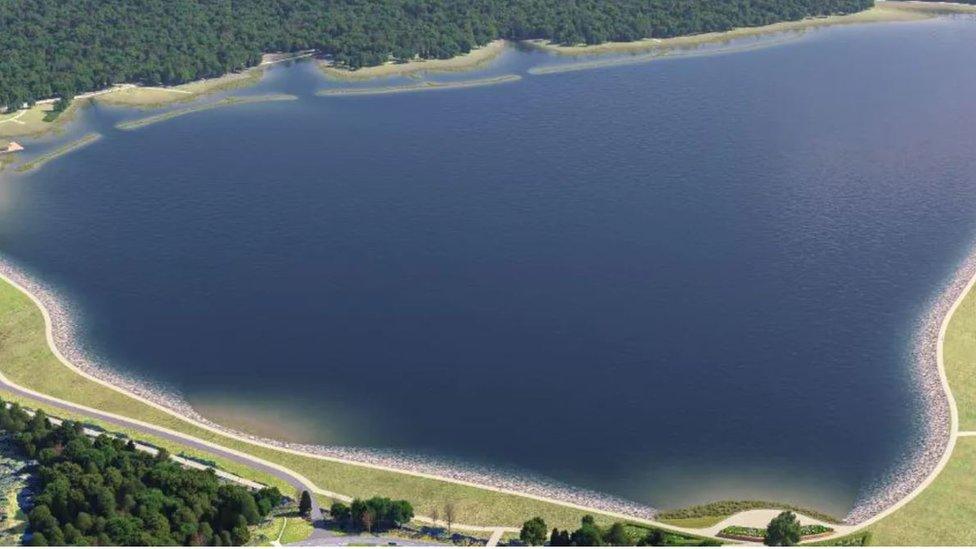Conservationists slam Southern Water Fawley desalination plan
- Published

The industrial desalination plant would be built close to Ashlett Creek
A proposed desalination plant on the shores of Southampton Water would have "ongoing adverse impacts", conservationists have warned
The plant near Fawley would extract seawater for filtering and chemical treatment and deposit brine back into the sea.
Hampshire and Isle of Wight Wildlife Trust (HIWWT) said it would threaten sensitive wildlife habitats.
Southern Water insists the plant is needed to counter future droughts.
Outlined in a consultation document entitled Water for Life, external, the plant at near Ashlett Creek would process 75 million litres of sea water per day.
Drinking water would be pumped 15 miles (25km) underground to Testwood Water Supply Works, while brine would be deposited back the sea through an outflow pipe.
In a letter to the utility company, HIWWT's Dr Tim Ferrero said it had "serious concerns" about the impact on sensitive marine habitats.
"The increased salinity of the brine could cause changes to the chemical composition of the surrounding water, impacting a wide range of marine species and potentially impacting the passage of migratory fish species into nearby river catchments," he said.
He added it could also cause algae build-ups and called on Southern Water to cut water lost through leaks and invest in water re-use.
More than 1,800 people have signed a petition opposing the plans.

Southern Water has proposed alternative options for abstraction, discharge and piping from the desalination plant
Robin Pearce, who set up a Facebook group to share concerns about the plant, said it would be a "ghastly environmental disaster".
He said: "It's a huge industrial plant at a lovely idyllic spot. People have pride in the New Forest and expect it not to be be chipped away at."
In its response, New Forest District Council said it was "a high-carbon, high energy option that is a poor fit with the national targets to achieve carbon net zero".
The local MP, Dr Julian Lewis, and The New Forest National Park have also voiced opposition to the plans.
Southern Water said the proposals would "secure a long-term drinking water supply for local communities in the event of a drought" and it would assess how environmental effects could be "avoided, reduced or mitigated".
Mark Wintringham, head of delivery, said the views expressed would "shape our developing plans to transform how we source, treat and supply water across the county".
He said, while projects like the Havant Thicket Reservoir would increase supply, solutions such as desalination were also needed in order to "meet the large shortfall".
"Alternatives are being explored as back-ups in case desalination proves unconsentable, to ensure we can continue to maintain customers' supplies," he added.

Follow BBC South on Facebook, external, Twitter, external, or Instagram, external. Send your story ideas to south.newsonline@bbc.co.uk, external.
Related topics
- Published22 May 2020

- Published14 January 2019
